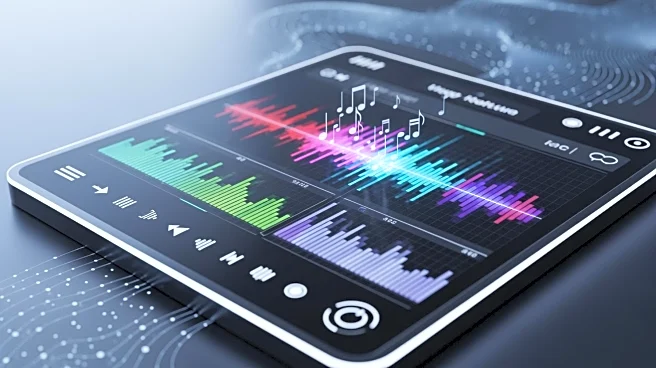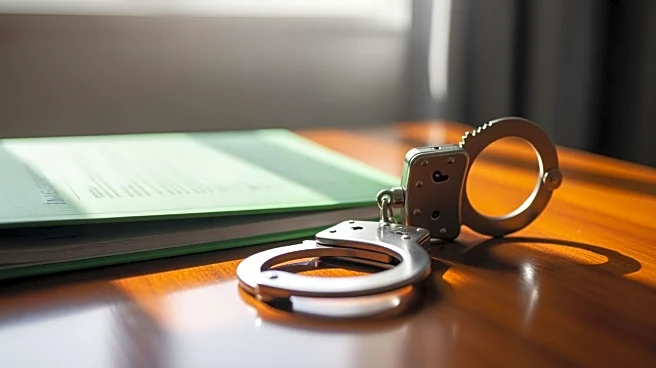What's Happening?
OpenAI is reportedly developing a new generative music tool that aims to transform vocal tracks by adding instrumental accompaniments. This innovative tool could redefine music production, particularly
for indie artists and TikTok stars, by providing AI-generated guitar riffs and other musical elements to enhance their creative output. The development of this tool is part of OpenAI's ongoing efforts to expand the capabilities of artificial intelligence in creative fields, offering musicians a new way to produce and share their work.
Why It's Important?
The introduction of OpenAI's generative music tool could have significant implications for the music industry, particularly for independent artists who often lack access to professional production resources. By enabling artists to easily add complex musical elements to their tracks, this tool could democratize music production, allowing more creators to produce high-quality content without the need for expensive equipment or studio time. Additionally, the tool could influence the way music is created and consumed on platforms like TikTok, where short, engaging musical clips are popular. This development highlights the growing role of AI in creative industries, potentially leading to new forms of artistic expression and collaboration.
What's Next?
As OpenAI continues to refine its generative music tool, the music industry may see increased adoption of AI-driven production methods. Artists and producers might explore new creative possibilities, integrating AI-generated elements into their work. The tool's success could prompt other tech companies to develop similar AI applications, further expanding the role of artificial intelligence in music and other creative fields. Stakeholders in the music industry, including record labels and streaming platforms, may need to adapt to these changes, considering how AI tools can be integrated into existing business models and distribution channels.
Beyond the Headlines
The development of AI-driven music tools raises important questions about the future of creativity and the role of technology in artistic expression. While these tools offer new opportunities for innovation, they also challenge traditional notions of authorship and originality. As AI becomes more integrated into creative processes, ethical considerations regarding intellectual property and the value of human creativity may become increasingly relevant. The long-term impact of AI on the arts could lead to shifts in cultural norms and the way society values artistic contributions.








